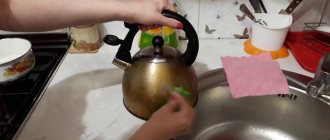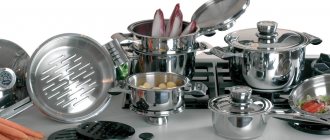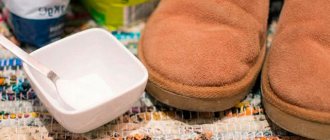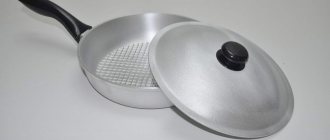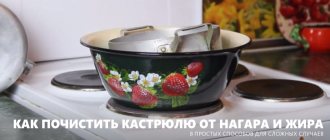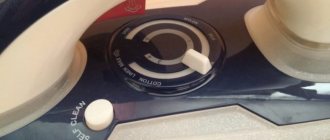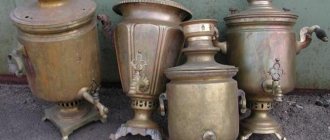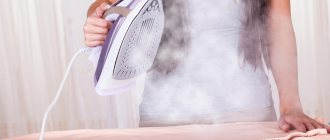The refrigerator has long become a familiar attribute of the modern kitchen. It allows you to store ready-made meals for 1-2 days, and purchase perishable and frozen foods with a reserve. Refrigeration equipment is especially helpful in the summer heat, when there are simply no other ways to store food. It is advisable to place even vegetables in a specially designated box.
Like any other kitchen appliance, the refrigerator needs timely and proper care. Traditional drip refrigerators and freezers need to be defrosted and cleaned as ice builds up. More convenient units with the know frost system should also be washed periodically. After all, crumbs and food particles accumulate on shelves and in sections. Accidentally spilled liquids are added to them - juices, broths, milk, as well as dirt from vegetables.
Since store packaging and weighed, piece products are far from sterile, various microorganisms get inside the unit. If you are lazy with cleaning, foreign odors, harmful mold, and pathogenic bacteria appear inside the chamber. To avoid unpleasant consequences for all household members, refrigeration equipment must be kept clean. And experienced experts will advise how to do this without wasting time and money.
Preparation and washing rules
Any process has one or another sequence, following which it will be possible to significantly simplify the task and reduce the time required to complete it.
Likewise,
the algorithm for properly washing a refrigerator includes several key points:
- Plan ahead to clean your refrigerator. This is necessary in order to have time to eat or prepare all the perishable foods that are stored in it by the scheduled time and thereby free up the internal space;
- Remove all contents of the refrigerator and defrost the device according to the instructions;
- Remove all removable elements - shelves, stands for storing eggs, bottles, containers for vegetables and fruits, etc.;
- Fill a deep basin or just a bathtub with warm water, add a little dishwashing detergent or grated laundry soap and soak all the removed elements. Let them “sour” a little while you wash the refrigerator inside and out. Contaminants softened in this way will be much easier to wash off. Please note that plastic and glass shelves and other parts must be soaked with warm, not hot water. Exposure to boiling water may cause the material to crack;
- After this, prepare a warm soapy solution and use a soft sponge to pre-wipe the refrigerator inside and out, paying special attention to all curves, corners and edges. Hard-to-reach places can be washed with cotton swabs or a gauze swab.
After light dirt has been removed with soapy water, you should proceed to more thorough cleaning of the unit. Considering that many housewives do not like to use household chemicals specifically for cleaning the refrigerator, we Let's consider all possible folk remedies, which will help remove certain stains.
General rules for cleansing
Before you start cleaning the refrigerator, you need to do a little preparatory work:
- First, remove all food from the refrigerator. If any of them are perishable, they should be sent to the balcony or placed in cold water. The refrigerator must be set to the “Defrost” mode, remembering to disconnect from the electricity.
- Pull out the removable drawers and shelves and put them aside. Rinse them with warm water, adding a little baking soda, then rinse under clean water.
- Use a soft sponge without metal inserts. Otherwise, scratches may remain on the plastic parts of the refrigerator.
After washing, you need to wipe all the insides of the refrigerator with a soft towel and leave to dry. All that remains is to return the shelves to their place and set the desired temperature.
How to properly clean a new refrigerator
Before you turn on a new refrigerator for the first time after purchase, much less load food into it, you must wash it.
Since the new equipment does not have any special contamination, except for a layer of dust, it is enough to carefully walk over the external and internal surfaces with a soft sponge dipped in a
warm soapy solution. The same should be done with all internal shelves, drawers, and other removable elements.
In addition to noticeable dirt, production chemicals and various bacteria may be present on the surface of a new refrigerator, because before entering your home, the equipment went through a long assembly process, was stored in a store and transported. You can disinfect the unit :
- A soft cloth soaked in alcohol or vodka;
- Vinegar solution. It is diluted with clean water in a ratio of 1:3;
- Soda solution. To prepare it, you need to dissolve 1-2 tbsp in warm water. baking soda and stir until the particles dissolve.
After wiping the equipment with the chosen product, let the liquid dry naturally, rinse with clean water and only then wipe with a dry, clean cloth. After washing, it is recommended to leave the refrigerator door open for 30 minutes. – 1 hour for the odor to evaporate if disinfection was carried out using vinegar. The refrigerator is now ready for use.
Weekly prevention
Refrigerator maintenance must be constant, since the health of the entire family directly depends on its condition. After all, we store perishable foods in the refrigerator, both cooked and raw. Pathogenic microorganisms can easily multiply in dirty environments and contaminate prepared food.
It is important to keep the refrigerator clean - this is, first of all, a matter of health.
When putting your refrigerator in order, you should decide on the means to care for it, as well as a schedule for cleaning the inside of the refrigerator.
If we wash the dishes, stove and tables every day, then it is usually considered that the refrigerator does not require such daily care. It is advisable to clean the refrigerator without defrosting once a week. While you're cooking in the kitchen, open the door and look for stains or stains inside your refrigerator, if crumbs have spilled onto the shelves, or if there is a stale smell.
For such work, you can use special antibacterial wipes or a sponge moistened with detergent diluted with water. If you clean it weekly, you won’t have to spend a lot of time cleaning it during spring cleaning.
Before you shop for next week's groceries, do a little inspection of the inside of your refrigerator. Be sure to throw away any food that has gone sour or has expired.
Once a month, carry out a thorough cleaning; to do this, completely empty the camera, remove all shelves and containers and wash in warm water with detergent.
IMPORTANT: do not forget to wipe the handle of the refrigerator, this is where the largest number of bacteria usually accumulates.
How to clean the outside of a refrigerator
The outer surface of the refrigerator is no less susceptible to contamination than the inside.
During the cooking process, we can open the door with not completely clean or dry hands; if the refrigerator is installed next to the sink, drops of water and soap solution will inevitably fall on it, proximity to the stove will ensure that drops of fat get in, etc.
- Since the outer surface does not come into contact with food, you can use not only soda, vinegar, soap solution, but also household chemicals to clean it;
- It will be much faster and less troublesome to remove fresh, not yet dried soap drops and other contaminants. To do this, you need to moisten a soft sponge in the selected product and thoroughly rub individual areas. Under no circumstances use the hard side of the sponge, much less metal scourers. If the surface of the refrigerator is glossy, in places of friction it may become noticeably duller due to the formation of many small scratches;
- If fingerprints need to be removed, use regular glass cleaner;
- If the prints are greasy, add a drop of dishwashing detergent to the sponge and lather well, then wipe with a clean cloth and wipe dry;
- On a stainless surface, any dirt, drops or streaks are much more noticeable. And even after washing, stains from the detergent . To avoid this, you need to wash off the detergent composition several times, preferably not with a sponge, but with a soft cloth, and then immediately wipe it dry with microfiber cloths;
- wipe a stainless steel surface either with movements left and right, or up and down, depending on the direction of the fibers of the material. This way you will give it the desired shine;
- Oil can be used to polish the outer surface of stainless steel after washing. Apply a few drops to a soft cloth and rub the refrigerator. But keep in mind that even the thinnest, imperceptible oil layer accumulates dirt much faster;
- If the stains are stubborn, apply a small amount of toothpaste to the stain, wait 10 minutes and scrub the stain with the soft side of the sponge. The toothpaste contains very mild abrasives that will not leave marks on the glossy surface;
- Another unusual way is to use apple cider. A glass of the drink is mixed with a glass of clean water and the liquid is applied to the stain. If the stains are stubborn, leave the product on for a few minutes.
Review of the best household chemicals
Many housewives use dishwashing detergents to clean the freezer and refrigerator compartments. But these drugs are not always effective enough and require careful rinsing.
Manufacturers of household chemicals have developed a series of specialized products: gels, sprays and wipes. Among them are both universal hygiene preparations for all elements of the refrigerator, and disinfectants with an antibacterial effect.
Let's consider what is the best way to clean a refrigerator, which products require mandatory rinsing, and which do not. A user review will help you make your choice.
No. 1 - EdelWeiss product
EdelWeiss is a Russian-made washing substance. Suitable for cleaning microwaves, refrigerators and freezers.
The sprayer operates in two modes: spray and foam. The emulsion is applied to a dry surface, and after half a minute it is thoroughly wiped with a soft cloth.
Distinctive features of EdelWeiss:
- neutral PH, no alkalis or acids;
- moderately aromatized - no chemical smell remains after treatment;
- consistency is liquid, color is transparent;
- economical spending;
- resists many types of pollution.
During storage, the container should be placed vertically, otherwise the packaging may leak.
No. 2 - TopHouse set
TopHouse is a whole set from a German company for getting rid of various kinds of stains.
Development for quick removal of external and internal contaminants on automobile refrigerators, household refrigerators and food containers.
The two-piece set includes a liquid cleaner and a cotton viscose napkin (32*32 cm). The “troika” set is supplemented with a helium odor absorber
The product is popular and has received many positive reviews from users.
Main advantages:
- fights old fat and dirt;
- suitable for rubber seals;
- destroys bacteria and unpleasant odors;
- does not require subsequent rinsing with water;
- adds shine to plastic coatings.
Cleaning with the TopHouse set is not a hassle - the high-strength napkin has a special structure and removes remaining dirt from the surface well.
No. 3 – Refrigerator cleaner from Light House
Refrigerator cleaner. A universal product from Light House for cleaning the inside of the refrigerator and cleaning the outside.
The product is relatively inexpensive, economical to use and effective. The foam is applied to the dirt, and after 2 minutes it is wiped off with a sponge. An additional plus is that it leaves an unobtrusive aroma and does not require rinsing with water.
No. 4 - EFSTO product
EFSTO is an affordable solution for quickly cleaning a refrigerator. Suitable for periodic cleaning without defrosting equipment.
The product does not contain abrasive components - it does not leave scratches on plastic drawers and glass shelves.
EFSTO contains sodium laureth sulfate and chlorine derivatives, therefore, when spraying and cleaning, you should use protective equipment - rubber gloves
No. 5 - spray foam from Luxus
Spray foam “Clean Refrigerator” from the manufacturer Luxus for cleaning glass, metal and plastic elements of the refrigerator. Effectively fights food stains: grease, stains from fruits and vegetables, stains from fish and meat.
The basis of the product is plant extracts. Thanks to this composition, the drug decomposes into safe components.
“Clean Refrigerator” is produced in three flavor variations: lime, mint and grapefruit. Bottle volume – 500 ml
To remove heavy stains, the manufacturer recommends applying the product in the form of foam and leaving for 5 minutes. To “refresh” the coating and add shine, just spray the liquid and wipe the surface dry.
The Clean Refrigerator has mixed user reviews. Some praise the drug for eliminating odors and being safe to use, while others note that to achieve the effect you have to use a lot of product and exert physical effort.
No. 6 - cleaner from Limpiya
Inexpensive spray foam with bactericidal action called “My Sweet Home” from Limpiya. Thick foam should be applied to the stain and left for 3-15 minutes.
The duration of action depends on the age and stains. After treatment, wipe with a damp cloth.
Cleaning foam does not leave streaks or strong odors and efficiently removes food residues. The only drawback that users note is that it is difficult to find on sale
No. 7 – Denkmit Feuchte napkins
Denkmit Feuchte wet disposable wipes are perfect for express cleaning and daily care.
Denkmin wipes remove dirt, eliminate unpleasant odors, and are suitable for cleaning the interior chamber and facade of the refrigerator
All Denkmin (Germany) products are of high quality and are in demand among consumers. The disadvantage is that it is expensive; for one package of 25 napkins you will have to pay about 4 USD.
No. 8 - House Lux napkins
The Russian one offers a worthy alternative to the German analogue. House Lux napkins produced by this company are suitable for quickly cleaning microwaves, refrigerators, convection ovens and ovens.
House Lux copes with greasy, dried stains - a little foam forms on the surface during cleaning. After treatment with a napkin, it is advisable to wipe the surface with a damp cloth.
The fabric is safe for hands, the material does not have an irritating odor and is used sparingly. Shelf life – 3 years, approximate price – 1 USD.
We wash away yellowness inside and outside
The plastic from which the inner chamber of the refrigerator is made loses its snow-white color over time and begins to gradually turn yellow.
Yellowness inside may appear due to the fact that small pieces of food, drops not wiped off in time and other contaminants are eaten into the surface layers of the plastic.
Yellowness on the outside often appears due to changes in the structure of the material. These processes can be caused by constant exposure to direct sunlight. In addition, the cause of yellowing may be the poor quality of the material itself. You can try to restore the original color using the following simple remedies:
- Laundry soap will help to cope with yellowness if the cause of its formation is a greasy coating. Half of the bar needs to be grated on a coarse grater. Pour warm water over the soap shavings and leave until completely dissolved, stirring occasionally. It should be a fairly thick paste. It must be applied to a sponge and thoroughly rub the yellowed areas. To achieve the best effect, the remaining pulp is distributed in an even layer over problem areas and left to act for 30 minutes. After this, the surface is wiped again with a sponge, washed with clean water and wiped dry;
- is a stronger remedy . Soak a cotton pad in regular rubbing alcohol and scrub the surface. Do not rub in one place for too long and with great force; if the plastic is already old, it may begin to dissolve at the site of impact. In the future, such a place will become polluted twice as fast;
- You can also remove yellowness with vinegar. Just not table grade, but 70-80% vinegar essence. This substance is very caustic and odorous, so be sure to open the window and wear rubber gloves before handling. A cotton swab or gauze swab is soaked in the essence and traces of yellowness are treated. Then rinse with clean water and wipe with a dry cloth;
- If the stains are small and barely noticeable, you can try removing them with lemon juice. It is applied to a cotton pad and treated problem areas;
- A good whitening agent is a mixture of toothpaste and ammonia . To prepare it, you need to squeeze a small amount of toothpaste onto a sponge and spread it lightly, add a couple of drops of ammonia on top. After treating the surface, it is washed, wiped dry, and the door is left for ventilation;
- Stubborn yellow spots are treated with hydrogen peroxide. Moisten a cotton pad with it and thoroughly wipe the surface at least 3 times. Then rinse with water and wipe;
- remove yellowness from the outer parts of the refrigerator using any means except acid-containing and abrasive ones.
How can you wash rubber seals?
Very often, liquid spilled inside the refrigerator drains and gets into the sealing rubber.
Small pieces of food, crumbs and other food particles can also collect there, which eventually begin to rot and emit an unpleasant odor.
The degree of fit of the refrigerator door directly depends on the condition of the seals. If the seals come off in some places, the cold from the chamber will flow out. Because of this, the temperature inside the unit may be insufficient, which will lead to premature spoilage of products and even failure itself . Wash the rubber bands very carefully so as not to damage them, and use only mild cleaning agents:
- The best solution remains a soap solution;
- disinfect the surface using a baking soda solution;
- You can also treat rubber parts with ammonia;
- After cleaning, the surface is washed with warm, clean water and must be rubbed with a dry cloth;
- If during cleaning you notice that the seal has lost its former elasticity, is cracked and begins to crumble, you need to treat it with glycerin. In advanced cases, the seal must be replaced;
- Do not wash rubber with vinegar and other acids, they can destroy the structure of the material.
Special refrigerator fresheners
Traditional methods are simple and effective, but still, you can resort to special means to wash the inside of the refrigerator and refresh the smell. Special aroma absorbers developed synthetically can simply be placed on the refrigerator shelf and the unpleasant smell will stop bothering you.
They exist in different types:
- - Gel granules. Helium substance in a plastic shell, service life of three months. Absorbs all unpleasant odors without interrupting the aroma of food.
- — The egg is an indicator. A ball that not only gets rid of bad odors, but also signals if the temperature inside the device is disturbed by changing its color - if the temperature is too high, it turns blue, if it is low, it turns white. Multifunctional item.
- — Ionizer. This device will not only save you from odors, but will also extend the life of finished products - you can keep it turned on in the refrigerator for just half an hour a day and the result will be noticeable.
- — Neutralizer. It is a carbon filter in a plastic shell. Service life – 5 months.
Getting rid of unpleasant odor
If the refrigerator is not washed on a regular basis, dirt is not removed immediately, or some products disappear during storage, a persistent unpleasant odor will form inside the chamber.
It is especially difficult to eliminate the smell of spoiled meat, but there are
several effective ways:
- Treating the inner surface with ammonia. A gauze cloth is soaked in ammonia and the entire contents of the refrigerator are thoroughly wiped, including all its bends, shelves, trays and containers. After treatment, it is advisable to leave the door open overnight for airing. When cleaning, be sure to wear rubber gloves and open the window for ventilation;
- Regular vinegar will help get rid of the smell of rotten meat 9% vinegar is diluted with warm water in a 1:1 ratio. Use a sponge or cloth soaked in a vinegar solution to wipe all surfaces, rinse with clean water and wipe dry;
- If you drink natural coffee, do not rush to throw away the coffee grounds. It perfectly absorbs unpleasant odors and, due to its softness, serves as a delicate abrasive for removing light stains. Apply wet coffee grounds to a sponge and wipe the surfaces, after which the remaining grains are washed off with a soft, clean cloth. You can also put coffee grounds on a saucer and leave them inside the refrigerator for several hours after general cleaning;
- pieces of black bread or a saucer with activated carbon in the refrigerator overnight
- rice or a glass of baking soda left overnight will also absorb unpleasant odors. can be used instead of soda ;
- Lemon juice diluted with water in a 1:1 ratio is also an effective destroyer of various unwanted odors.
Using odor absorbers
Situations often arise when there is simply not enough time to clean the refrigerator. Therefore, if cleaning is completely excluded, it is necessary to use improvised means that absorb all foreign odors. They are placed in a small container and placed open on a shelf.
Among the best homemade products to neutralize unwanted odors:
- Baking soda. Used dry. An open cardboard pack is placed near sources of odor.
- Coffee. Used ground or in grains. Place it in a small saucer and place it in the refrigerator.
- Activated carbon. It is a universal sorbent. Used in medicine and other fields. The number of tablets varies depending on the size of the unit. The larger the volume, the more coal will be needed. Used whole or crushed. It is recommended to heat the charcoal in the microwave before putting it in the refrigerator.
- Citrus. The simplest way is to cut an orange, lemon or grapefruit in half and place it in the chamber.
- Black bread. The slices are placed on different shelves. They cover the entire interior space and absorb odors well.
- Black tea. It is also distributed evenly inside the refrigerator. Used in bulk or in bags.
- Rice, preferably boiled. Perfectly absorbs excess moisture and eliminates unwanted odors.
- Filler. Used in cat litter boxes and contains zeolite. Thanks to this mineral, both water and odors are actively absorbed.
- Spices. They require careful use, since many of them are themselves strong flavors. It is quite possible that after using them, the refrigerator will need to be ventilated separately.
Washing mold
Mold in the refrigerator is not always immediately noticeable, but if there is a characteristic musty smell inside, and there are no spoiled foods, this may indicate the beginning of the mold formation process.
In fact, mold is a fungus that quickly forms and spreads in damp spaces without ventilation.
Accurate evidence of its appearance are black or dark gray spots, which need to be eliminated as quickly as possible. Mold can cause allergies and respiratory diseases. Store-bought chemicals designed to kill mold cannot be used to clean the interior of the refrigerator, as it contains chlorine. This substance must not be combined with food storage areas due to its toxicity. Use folk remedies:
- Treat the affected area with hydrogen peroxide;
- Prepare a soda solution. Mix a teaspoon of baking soda in warm water and rub the mold well with a sponge soaked in the resulting solution;
- Soak a cotton pad in table vinegar and treat the affected areas. Then rinse with clean water;
- Natural essential oils of tea tree or monarda will also help. A couple of drops of oil should be dissolved in a glass of warm water. This product is an excellent disinfectant.
Any of the products should be left on the affected area for at least 30 minutes. During this time, the fungus should die. After this, the surface can be additionally washed with soapy water.
Procedure for cleaning the refrigerator
Routine cleaning does not cause much hassle or difficulty, which cannot be said about a general wash with defrosting. The whole process can be divided into several stages.
Step #1 - releasing the cameras
Before washing the inside of the refrigerator chamber, the unit must be turned off or the thermostat must be switched to defrost mode.
Remove the contents of the compartment and place them in a bowl of ice. At this stage, it is appropriate to audit the products - throw out expired ones, take contaminated containers to the sink. Remove all removable elements.
Step #2 - defrost the unit
After turning off the refrigerator, you need to open the freezer door wide open and remove the food.
Some models of equipment have a tray for collecting melt water. If such a container is not available, then you should place a basin under the “ice” shelf or lay out a towel to absorb the liquid.
It remains to wait for complete defrosting. To speed up the process, you can put a heating pad in the chamber or spray the ice with hot water from a spray bottle.
We recommend that you read the detailed instructions and rules for defrosting the refrigerator.
Step #3 - cleaning the drainage and walls
Apply detergent to the inner surfaces of the chambers, leave for a couple of minutes and wipe with a soft sponge. If necessary, clean the drainage hole with a small brush.
Step #4 - washing the internal compartments and shelves
It is advisable to place heavily soiled elements in a soap solution or treat them with a cleaning agent and leave for 20 minutes. Afterwards, clean with a cloth and, if necessary, repeat the procedure.
The seal is wiped with warm water; when cleaning the element, you should avoid using vinegar and solutions based on it. If during the cleaning process you notice that the rubber seal has defects or does not fit tightly, you will have to select a new one and replace it with the damaged one.
Step #5 - Cleaning the Door
At this stage, all external elements are cleaned from stains, stains, fingerprints and other types of dirt.
The final stage of cleaning is washing the outside of the door. The refrigerator lid must be wiped clean of dust, and the door and handle must be cleaned of dirt.
In conclusion, you need to let the equipment dry, put the products back on the shelves and connect the unit to the network.
Eliminate drops of fat and soot
It is easier to wipe off grease from the outer or inner surface of the refrigerator than other types of dirt.
If the fat layer has already hardened, it must
first be soaked with a warm soapy solution.
In advanced cases, you can leave the solution on problem areas for a while to better soak the fat. After this, the refrigerator is thoroughly wiped with a soft sponge. If spots are still visible in some places, you need to act on them locally. Can be used:
- solution based on soda or vinegar;
- dishwashing detergent;
- household chemicals intended for cleaning ovens.
Preparing a kitchen appliance for using soda solution
Sodium bicarbonate is a substance with many advantages. One of them is the effective removal of dirt and grease without damaging surfaces. It is baking soda that is an excellent alternative to expensive drugs offered by hardware stores.
Before using baking soda to clean the appliance, it is recommended to do some simple preparation:
- Remove the plug from the socket and wash only when the electrical power is turned off.
- Clean the freezer, remove food, it is recommended to put the freezer in a cool place.
- Remove the contents of the main part of the refrigeration unit and fill large containers with products.
- Remove trays, drawers, grilles, shelves, and take them to the bathroom - here they can be easily washed and disinfected.
- If you have a shared freezer, wait for complete defrosting, promptly removing any draining liquid from the trays.
Recommended for you:
How to get rid of mold with baking soda at home
Prepare a NaHCO3-based product just before washing.
How to remove glue, traces of tape and stickers
Very often, after removing factory or decorative stickers from the surface of the refrigerator, especially if they have been there for a long time, traces of glue remain.
If
the adhesive layer was old, it will be impossible to wipe it off with a regular soap solution. Use the following tools:
- Before peeling off a sticker or paper label, soak it in hot water. Just wet its surface with a sponge and repeat the procedure several times after 5 minutes. After the top layer has been soaked, you can rub it with the hard side of the sponge. This way you can remove the sticker without a trace;
- Remains of glue are wiped off with nail polish remover, solvent or alcohol. First, we recommend wiping the surface area in an inconspicuous place with a solvent and making sure that it has not become dull;
- Moisten the glue mark with vinegar or vegetable oil, leave for 5-10 minutes, then wipe off with a soapy sponge;
- You can soften the glue by heating it with a regular hairdryer. Afterwards it is scrubbed with a soapy sponge or alcohol.
Prohibitions when cleaning
Despite the desire to return the refrigerator to whiteness quickly, you should adhere to certain rules:
- When cleaning, do not use objects with abrasive surfaces - hard brushes, scrapers, knives, etc.
- Glossy surfaces should not be cleaned with powder detergents, only liquid ones.
- Any cleaning agent used must be thoroughly rinsed off at the end of cleaning, unless otherwise specified by the manufacturer.
- Do not use chemicals that are not intended for cleaning the refrigerator, especially inside the appliance. Not only can they damage the surface, but they can also pose health risks.
- After finishing cleaning, the refrigerator must be given time to ventilate. To do this, you need to leave it open for a short time.
The more carelessly the refrigerator is used, the more difficult it will be to restore its whiteness.
You will find useful tips and tricks for cleaning your refrigerator in this section.
Wash the marker or pen
If you have small children in your house, then the problem of outlining surfaces, any kind, with markers, felt-tip pens, pens and other writing equipment is probably close to you.
To remove traces of a marker from a refrigerator, you must first
find out what base it is - water, alcohol, oil or acrylic. This is indicated on the label. The most difficult to remove is a permanent marker or felt-tip pen. The sooner you start cleaning, the more likely you will be able to remove the ink without a trace:
- water-based marker can be washed with ordinary soapy water;
- Alcohol-based markers can be wiped off with alcohol. But first check in an inconspicuous place how alcohol will affect the enamel;
- If it doesn’t help , try a solvent such as white spirit;
- Before exposure to solvent, try scrubbing off the ink with toothpaste;
- Aggressive agent – WD-40.
Why is there a tea bag in the refrigerator?
Many housewives wonder: why store used tea bags in the refrigerator? After all, such recommendations can be found on some forums, and there are corresponding pictures on the Internet.
It's very simple -
a used tea bag perfectly absorbs unpleasant odors. The bag must be dried before placing it in the chamber. If you renew the bags every week, the effect will be much better.
Care Tips
Proper care of your refrigerator will extend its life and keep food fresh for a long time:
- Every day you need to inspect the products stored in the refrigerator.
- Every 7-8 days the room is cleaned without defrosting; just remove all the food.
- To prevent odor, you need to store baking soda or activated carbon inside.
- Wet cleaning is always carried out after turning off the unit from the network.
- Do not use preparations containing abrasive components.
How to bleach an old refrigerator and remove rust
You can restore the former whiteness of an old refrigerator.
Using the following compositions:
- Peroxide + hair lightener To enhance the effect of peroxide, mix it in equal proportions with any hair lightener and apply to yellow spots for 10-15 minutes;
- Acetone is a rather aggressive agent. You should not apply it to the entire surface at once. Start with inconspicuous places. Soak a cotton pad or gauze in acetone and apply to the stain for 5-140 minutes, rub and rinse thoroughly;
- Washing powder + soda. Mix the two substances in equal proportions (1 tablespoon each) and dissolve in 0.5 liters of warm water. Apply to the surface and leave to act for 6-8 hours;
- Car cosmetics. There are special products on sale for car interior care. Sometimes they help remove yellowness from plastic surfaces;
- Chlorine bleach. This product should not be used to whiten the interior surface. Apply bleach to the external parts and leave for 15-20 minutes;
- Stain remover for plastic. There are special stain removers on sale that are designed specifically for use on plastic surfaces.
If some stains do not respond the first time, you can use several bleaching methods in turn. If this does not help, it means that irreversible processes have occurred in the structure of the material and further exposure of the surface to aggressive substances can lead to its destruction.
Lemon acid
You can use fresh lemons or powdered citric acid.
- Dilute two tablespoons of juice or 1 teaspoon of powder in half a liter of warm water.
- Heavy stains can be rubbed with a cut lemon slice or soaked with a more concentrated acid solution - take a glass of water per teaspoon.
- The insides of the chambers are wiped from top to bottom with a moistened sponge or cloth. Hard-to-reach places can be treated using a sprayer or a brush with a long handle.
- After cleaning, the surfaces must be wiped dry.
A pleasant bonus of this method is the delicately refreshing aroma of lemon, which lasts for several days.
How often should you wash
General cleaning of the refrigerator, which includes defrosting it, should be done no more than once a month.
But it is better to carefully read the operating instructions regarding the recommended defrosting frequency, so as not to damage the device.
to wipe the outer surface once a week with a damp sponge or soap solution.
to wipe the interior chamber, including the freezer, whenever it gets dirty. But it is better to wipe up any spilled substance immediately. Then cleaning the refrigerator will not cause difficulties and require the use of aggressive compounds.
The article was written for the site.
Tags:Kitchen, Appliances, Cleaning
Features of cleaning a camera with the No frost system
If the refrigerator is equipped with the No Frost system, then the formation of snow deposits on the walls is not observed. But it is still necessary to defrost the chambers every six months. The unit is turned off from the network, all walls are wiped inside and out with a cleaning agent, and wait until it dries completely.


